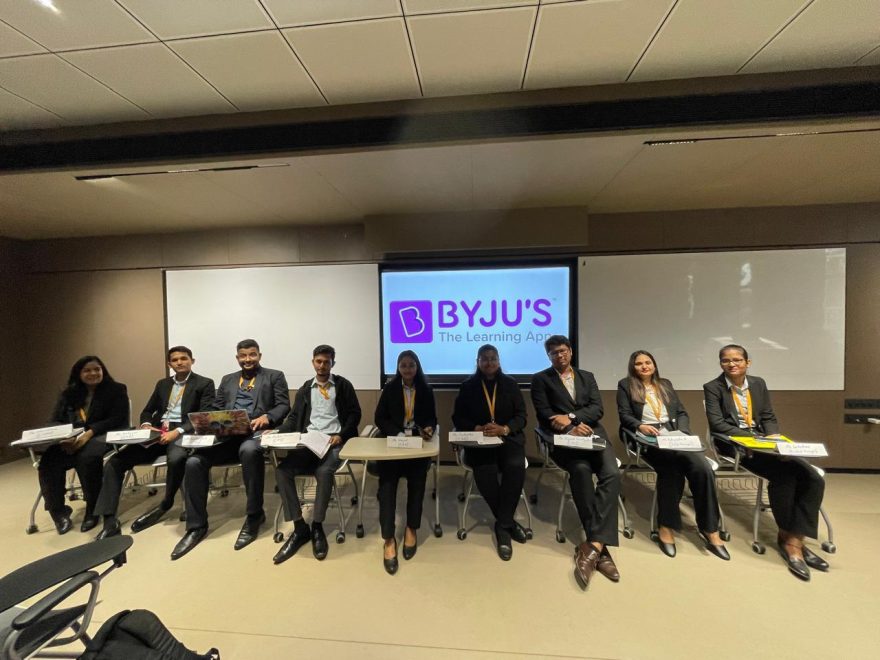Welcome to Student Success Centre Updates!
At the Student Success Centre, we’re dedicated to fostering a collaborative and creative learning environment. September marked the launch of our Monthly Mentoring Challenge, and we’re thrilled to share the progress and outcomes from our first month focused on Startup Challenges. Here’s a recap of the four-week journey, along with key learnings and outcomes from each phase.
Week 1: Idea Brainstorming and Selection
we kicked off with an intensive brainstorming session, where each mentorship group worked together to generate innovative business ideas. Students were encouraged to think critically about market demand, feasibility, innovation, scalability, and their personal passions. At the end of the week, teams selected their top business ideas and presented them to their mentors. This week was all about nurturing creativity and practicing decision-making as students explored diverse possibilities and honed in on a single idea.
Learning:
Students gained insights into effective brainstorming techniques and learned how to evaluate and prioritize ideas based on key business factors.
Outcome:
Each team successfully selected a unique business idea that tackled a specific problem or market need, setting a solid foundation for the weeks ahead.
Week 2: Market Research and Feasibility Analysis
During the second week, teams dived deep into market research to validate their ideas. Using surveys, interviews, secondary research, and industry reports, they gathered valuable data on target demographics, industry trends, competitors, and potential challenges. Teams compiled their findings in a detailed report and received feedback from their mentors on areas for improvement.
Learning:
This week provided hands-on experience in conducting market research and performing a feasibility analysis. Students learned the importance of data-driven decision-making and understood how to identify potential barriers early in the process.
Outcome:
Each team produced a comprehensive report with actionable insights into their target market, enabling them to refine their business concepts.
Week 3: Business Plan Development
With validated ideas, teams moved forward to develop detailed business plans. Guided by templates and examples, students crafted sections on the executive summary, company description, market analysis, product/service offering, marketing strategy, operational plan, and financial projections. Mentors and peers reviewed these plans, offering constructive feedback to enhance the quality and feasibility of each proposal.
Learning:
Students learned how to create a structured business plan, covering all essential aspects from market analysis to financial projections. The exercise emphasized the need for a solid framework to articulate a business concept.
Outcome:
Each team completed a robust business plan that outlined their vision, operational structure, and strategies, bringing their ideas closer to reality.

Week 4: Presentation of the Business Plan
In the final week, teams presented their polished business plans. They practiced their presentation skills and used visual aids to communicate their ideas effectively. Mentors provided valuable insights and recommendations for improvement, preparing students for future pitching and presentation scenarios.
Learning:
The presentation week taught students the art of persuasive communication and how to showcase their business ideas to an audience. They also gained confidence in public speaking and handling constructive criticism.
Outcome:
The teams delivered impressive presentations, highlighting their creativity, analytical skills, and newfound entrepreneurial acumen. This marked the culmination of a month of hard work, teamwork, and learning.
Monthly Challenge Summary
The first month’s mentoring challenge provided students with a comprehensive introduction to entrepreneurship, from idea generation to presenting a fully-fledged business plan. By navigating each stage, students developed critical skills such as creative thinking, market analysis, business planning, and presentation.
Impact:
This month-long journey fostered a stronger sense of collaboration and leadership within each team. The challenge inspired students to explore their entrepreneurial potential and laid the groundwork for future mentoring challenges at the Student Success Centre
About ISBR Business School: ISBR Business School, located in Bangalore, India, is a premier institution dedicated to providing world-class education in business and management. Accredited by the NBA and recognized by the Association of Indian Universities and the Ministry of HRD, Government of India, ISBR has consistently been ranked as a platinum institute by AICTE-CII. With a diverse student body, a strong emphasis on industry collaboration, and a curriculum designed to foster innovation and leadership, ISBR Business School is committed to shaping the business leaders of tomorrow. The school’s robust placement record and partnerships with top global companies underscore its commitment to excellence and career readiness for its students

